|
Dear Colleagues,
I am pleased to include another issue of RFS Briefings with some timely and encouraging updates on women in science.
In case you missed it, we will be hosting our next Women in Science Webinar with Fiona Murray, the Associate Dean of Innovation and Inclusion at the MIT School of Management and William Porter (1967) Professor of Entrepreneurship. Register now for the event on October 1st at 12 pm ET.

See below for more news about women in science
Please continue to share important news and opportunities with us so that we may share it with you, and others who are committed to supporting the careers of exceptional women in science.
Stay safe and sound,
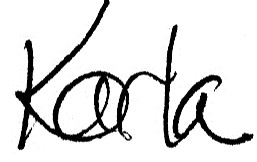
Karla Shepard Rubinger
Executive Director
Rosalind Franklin Society
www.rosalindfranklinsociety.org

Leslie Vosshall named Vice President and Chief Scientific Officer at HHMI.
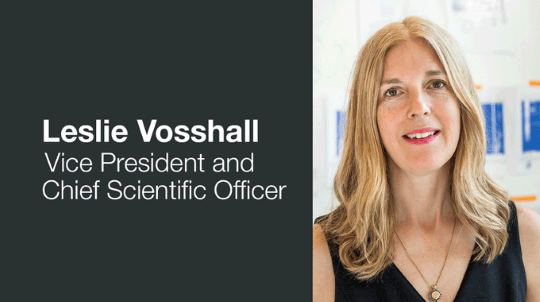
HHMI Investigator Leslie B. Vosshall, PhD, will become Vice President and Chief Scientific Officer at HHMI, effective March 1, 2022. “I’m thrilled to welcome Leslie to our HHMI leadership team,” said HHMI President Erin O’Shea. “Her combination of scientific skill, HHMI experience, and passion for building the future of science will help us take big leaps forward to achieve our goals. I also want to deeply thank David for his leadership, stewardship, and tireless commitment to our basic science mission.” Read more.
Biology starts to get a technological makeover.
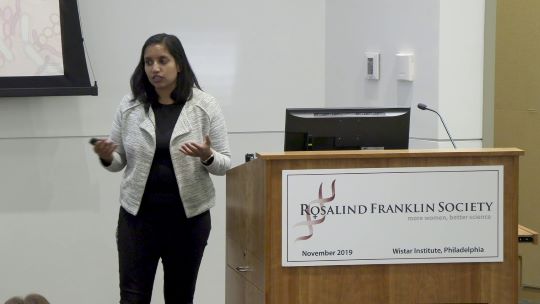
The story of Ginkgo Bioworks shows the challenges and progress in the emerging field of synthetic biology. Ginkgo is raising more than $1.6 billion to further expand its automated biology foundry by going public through a special-purpose acquisition company. Co-founder Reshma Shetty (pictured above) was the BIO 2019 Rosalind Franklin Award Winner! Watch her presentation here. We also applaud Emily Leproust, CEO of Twist Bioscience, also mentioned in this NYT article. Watch her presentation here.
An mRNA pioneer discusses how her work led to the COVID vaccines.
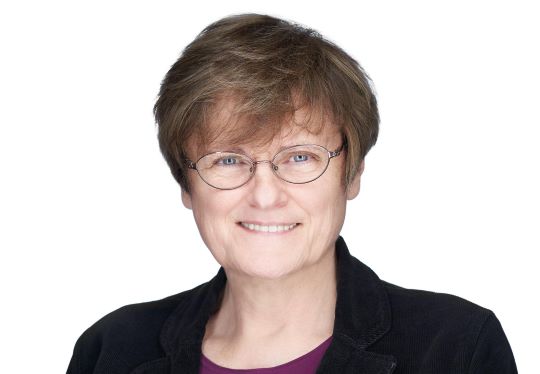
Dr. Katalin Karikó. Credit: Photo courtesy of Vilcek Foundation/MHamiltonVisuals
Scientific American spoke with Katalin Karikó about how she came to work on mRNA, why it was well suited for COVID vaccines and what other exciting medical applications it could have. “I never wanted to actually develop a vaccine. I was making this modification in the RNA because I always wanted to develop it for therapies. And when, in 2000, we learned that adding messenger RNA (which I made) to humans, they made inflammatory molecules—cytokines—I thought that I had to do something,” Karikó said. Read more.
Politics will be poorer without Angela Merkel’s scientific approach.

Departing German Chancellor Angela Merkel has stood out among politicians for her commitment to science and evidence.Credit: Nature News,
Maciej Luczniewski/NurPhoto/Getty
Departing German Chancellor Angela Merkel has stood out among politicians for her commitment to science and evidence, according to an editorial in Nature. “Over the years, her administration has strengthened and internationalized German science. Every government is imperfect when it comes to protecting peoples’ rights, promoting security and well-being, and administering justice, but Merkel brought compassion and an insistence — unusual among politicians, even in the time of COVID-19 — that decision-making benefits from evidence. All of this will make her a hard act to follow.” Read more.
The Godmother of the digital image.
Ingrid Daubechies is most famous as a pioneer of wavelets, but more broadly, her scientific contributions over the last three decades have rippled out in all directions from the field of “signal processing.” Wavelets are versatile mathematical tools that can be thought of as a zoom lens, making it possible to spotlight the information that matters most in an image. Read more.
Women less likely to win major research awards.
Lokman Meho, an information scientist at the American University of Beirut, examined whether gains in professorships for women have translated into awards honoring their work. His findings show that women’s share of international prizes rewarding research excellence is increasing, but still lags behind the proportion of professorial positions held by women. The disparity is greatest in disciplines including life sciences, computer science and mathematics. Read more.
Cancer immunologist Karin Pelka joins Gladstone Institutes.
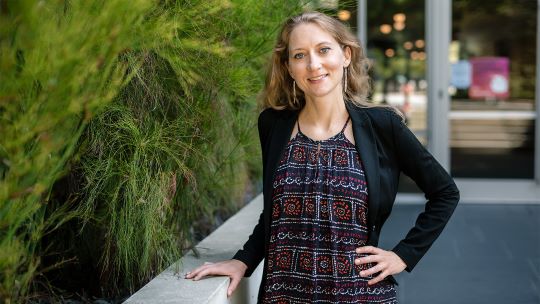 Karin Pelka. Photo: Michael Short/Gladstone Institutes. Karin Pelka. Photo: Michael Short/Gladstone Institutes.
Karin Pelka is joining Gladstone Institutes as an assistant investigator, with a long-term goal of understanding how innate immune mechanisms shape anti-tumor immunity. "Our immune system is really powerful because it's very adaptable; it can learn from and adapt to various situations," she says. "We want to find new ways of using different weapons of the immune system to tackle disease. For now, I'm focused on cancer, but this is really a concept that broadly applies to other diseases." Read more.
A medical career, at a cost: infertility.
Dr. Ariela Marshall, a hematologist at the Mayo Clinic in Minnesota, was surprised to find that she could not have children at 34, even with fertility drugs. Jacqueline Mroz reports for The New York Times that when Dr. Marshall reached out to other female physicians to share her story, she learned that she was far from alone. In fact, a 2016 survey of female physicians in the Journal of Women’s Health found that nearly one in four of those who had tried to have a baby had been diagnosed with infertility — almost double the rate of the general public. Read more.
Björkman recognized for outstanding achievements in science.
Pamela Björkman, the David Baltimore Professor of Biology and Biological Engineering and a Merkin Institute Professor at Caltech, has been named the recipient of the 2021 Pearl Meister Greengard Prize, a major international award recognizing outstanding women scientists and presented by The Rockefeller University. Björkman is being recognized for "discovering key aspects of the immune system that are helping to direct better treatment for infection from viruses and other diseases," according to the university's press release. Read more.
The Elizabeth Holmes trial is a wake-up call for sexism in tech.
“As Ms. Holmes’s trial for fraud continues in San Jose, Calif., it’s clear that two things can be true. She should be held accountable for her actions as chief executive of Theranos. And it can be sexist to hold her accountable for alleged serious wrongdoing and not hold an array of men accountable for reports of wrongdoing or bad judgment,” writes Ellen Pao for The New York Times.Read more.
Antony Hewish, astronomer honored for the discovery of pulsars, dies at 97.
He received a Nobel Prize for his findings. Some criticized the prize because it was a graduate student in his lab who had first detected the signals. "The signals from the first two pulsars had in fact been detected and analyzed by Jocelyn Bell, a 24-year-old Cambridge graduate student who was working on the new telescope." She was an RFS speaker last December, watch her presentation here and read the article here.
HHMI invests $300 million in 33 new investigators.
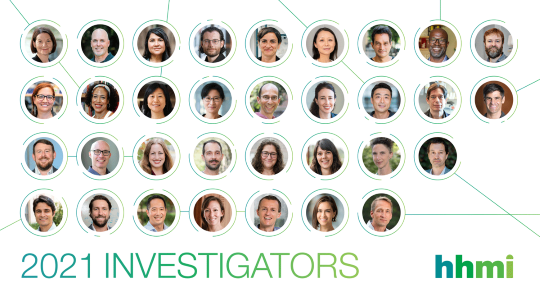
These scientists and their fellow 2021 Investigators could radically change how we think about biology, human health, and disease. HHMI will invest at least $300 million in these new Investigators, who come from 21 US institutions and will join HHMI’s Investigator community, which currently includes approximately 250 scientists. Read more.
Apply today for the inaugural Michelson Philanthropies and Science Prize for Immunology!
The Michelson Philanthropies & Science Prize for Immunologyfocuses on transformative research in human immunology, with trans-disease applications to accelerate vaccine and immunotherapeutic discovery. Deadline for entries: October 1, 2021
Covid vaccine pioneers and others win 2021 Lasker Awards in Medicine.
The Lasker awards were given to scientists whose work was crucial for Covid-19 vaccines, scientists who discovered how to control the firing of neurons with beams of light, and to a researcher whose influential work and leadership changed medical science. Katalin Kariko, a senior vice president at BioNTech, and Dr. Drew Weissman, a professor in vaccine research at the University of Pennsylvania’s Perelman School of Medicine, shared this year’s award. Read more. Image: Lasker Foundation.
Marianna Limas, Social Media Manager
Nilda Rivera, Partnership and Events Manager
|
|
Dear Colleagues,
I am pleased to include another issue of RFS Briefings with some timely and encouraging updates on women in science.
- Register now for our next Women in Science Webinar with Fiona Murray, the Associate Dean of Innovation and Inclusion at the MIT School of Management and William Porter (1967) Professor of Entrepreneurship. She is the co-director of MIT’s Innovation Initiative and Faculty Director of the MIT Legatum Center for Entrepreneurship and Development.
Murray is an international policy expert on the transformation of investments in science and technology into deep-tech start-up ventures that solve significant global challenges and create national advantage – from defense and security to health, food and water security.
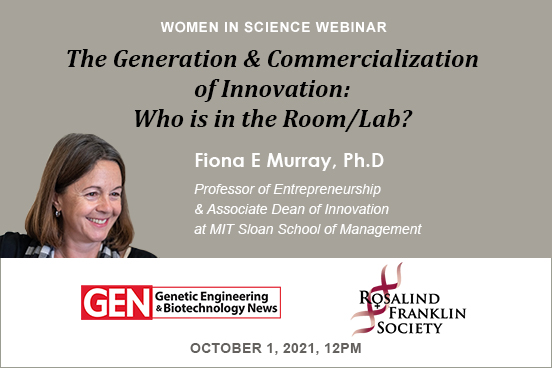
- Apply now for the Alan Alda Center for Communicating Science Women in STEM Leadership Program. Early and mid-career, US-based STEM professionals are invited to apply. This program is designed for STEM professionals eager to become agents of change to help shift the culture in their fields. Read more.
-
The National Foundation for Cancer Research invites the scientific community to nominate qualified researchers for the 2022 Szent-Gyorgyi Prize. The nomination portal is open through October 15, 2021. Read more.
-
The 8th annual Raw Science Film Festival is open for entry. Its mission is to humanize science and ensure fact-based experts stay at the forefront of popular culture by celebrating the best science storytelling in the world. Read more.
-
On September 16, hear from three fellows from different disciplines as they discuss how the STPF fellowship impacted their identity, career trajectory and understanding of science policy. Read more.
See below for more news about women in science
Please continue to share important news and opportunities with us so that we may share it with you, and others who are committed to supporting the careers of exceptional women in science.
Stay safe and sound,

Karla Shepard Rubinger
Executive Director
Rosalind Franklin Society
www.rosalindfranklinsociety.org

COVID advances win US$3-million Breakthrough prizes.
Pioneers of mRNA vaccines and next-generation sequencing techniques are among the winners of science’s most lucrative awards. Congratulations to Biochemist Katalin Karikó, who helped to develop a way to deliver mRNA into cells without triggering an unwanted immune response. Read more.
She was a speaker last month at our GEN/RFS Women-in-Science series and you can listen to her presentation here.
Meet the 2022 Vilcek Foundation Prizewinners!
The Vilcek Prizes recognize immigrant professionals whose work contributes to intellectual and cultural life in the United States. The 2022 prizes are awarded in biomedical science, dance, and biotechnology.

Katalin Karikó receives the Vilcek Prize for Excellence in Biotechnology for her pioneering research leadership into the development of mRNA therapeutics, which led to the development of mRNA vaccines for COVID-19. Read more. And we are grateful to the Vilcek Foundation for support
of her recent presentation for our GEN/RFS Women-in-Science webinar, which you can listen to here.
Top Women in Precision Medicine.
In this second annual selection of women making their mark in precision medicine, Clinical OMICs highlights women that hail from different corners of the world—China, India, France, Iran, and Poland. Whether it is launching a new sequencing platform, providing deeper insights of the biology of individual cells, or tackling therapeutic challenges by understanding the healthy, not the sick, all five leaders are making their presence felt. Read more.
Royal Society Rosalind Franklin Award honor for Dr. Suzie Imber.

Dr. Suzanne (Suzie) Imber, Associate Professor in Space Physics at the University of Leicester, has been named as this year’s recipient of the prestigious Royal Society Rosalind Franklin Award and Lecture 2021. Dr. Imber was recognized for her achievements in the field of planetary science. Read more. Image by The University of Leicester.
Dame Jocelyn Bell-Burnell: NI scientist awarded Royal Society's highest prize.

Dame Jocelyn Bell Burnell, a leading astrophysicist from Northern Ireland, has been awarded the Royal Society's highest prize, the Copley Medal, which is the world's oldest scientific prize. She was recognized for her work on the discovery of pulsars. Read more. She was a recent speaker at our end-of-year colloquium: Labs Leaders, Critical Connections. Listen to her presentation here.
Women in science face authorship disputes more often than men.
A survey published in Science Advances on September 1 found that women scientists are more likely to be involved in authorship disputes than men. More than half of the survey participants reported having authorship disagreements. Read more.
Biomedical innovations from women less likely to be adopted.
“We find that women’s ideas are less adopted,” says coauthor Wei Cheng, an economist at East China University of Science and Technology, in part because “women are not as well-connected in networks as men,” at least when it comes to short-range connections. Even with its limitations, the study shows that “in some ways, inequality is encoded into our social networks,” says University of California, Berkeley, computational social scientist Douglas Guilbeault, who was not involved in the work. Read more.
MSU center announces mini grants to promote imagery of women in STEM.
The Montana Girls STEM Collaborative is offering mini grants of $500 to $1,000 for youth organizations that use multimedia assets from a database that features women scientists and engineers. The database, called the IF/THEN Collection, was created by Lyda Hill Philanthropies to enhance the perception of women in STEM careers. The collection features photos, videos, activities and other resources. Read more.
Schemer or Naïf? Elizabeth Holmes is going to trial.
After four years, Elizabeth Holmes, the founder of the blood testing company Theranos, is set to stand trial for fraud, capping a saga of Silicon Valley hubris, ambition and deception, according to The New York Times. Ms. Holmes, whose trial is expected to last three to four months, is battling 12 counts of fraud and conspiracy to commit wire fraud over false claims she made about Theranos’s blood tests and business. Read more.
Valley of Hype: The culture that built Elizabeth Holmes.
Elizabeth Holmes, once lauded as the world’s youngest self-made female billionaire, faces criminal charges and up to 20 years in federal prison if she's convicted. Yahoo Finance’s first original documentary turns the page on the meteoric fall of Holmes and her blood-testing startup, Theranos. Read more.
How innovation is challenging conventional assumptions about STEM careers.
The Estée Lauder Companies and Fast Company recently hosted an Innovation Festival 360 event that brought together three accomplished women in STEM to discuss how the perception of what a scientist can be has become more expansive and what young people need to understand about STEM careers. Here are four key takeaways from the event. Read more.
Conservation needs more women, says Razan Khalifa Al Mubarak.
Razan Khalifa Al Mubarak is in the running to become the first woman from the Arab world to head the International Union for Conservation of Nature (IUCN). “It is critical that women have an equal voice in decision-making when it comes to the sustainable use of land, water, and other natural resources,” she told Mongabay founder Rhett A. Butler during a recent interview. “Women are not just lacking an equal seat at the table at a grassroots level. Like many fields dominated by men such as science, engineering, and government, women are also underrepresented in the conservation world.” Read more.
How Computer Science Became a Boys’ Club Women were the first computer programmers. How, then, did programming become the domain of bearded nerds and manly individualists?
Computer programming wasn’t born male. As computing historian Nathan Ensmenger notes, programming was initially seen as a woman’s job. So how did the male nerd come to dominate the field and popular ideas about it? Read more.
Meet Nancy Grace Roman, the “mother” of the Hubble Space Telescope.
She discovered fundamental truths about stars and galaxies, and also shaped NASA into what we know it as today, writes Briley Lewis. “Roman, known now as the “mother of Hubble”, was born in Tennessee in 1925 and grew up as the quintessential kid with their head tilted up at the stars. Her mother took her on walks to observe nature, showing her constellations at night, while her scientist father answered her curious questions.” Read more.
Marianna Limas, Social Media Manager
Nilda Rivera, Partnership and Events Manager
|
|
Dear Colleagues,
I am pleased to include another issue of RFS Briefings with some timely and encouraging updates on women in science.
- With the upcoming trial of the disgraced Theranos CEO, you may be interested in the 2018 book which documents her meteoric rise and fall - Bad Blood: Secrets and Lies in a Silicon Valley Startup, by Wall Street Journal reporter John Carreyrou.
See below for more news about women in science
Please continue to share important news and opportunities with us so that we may share it with you, and others who are committed to supporting the careers of exceptional women in science.
Stay safe and sound,

Karla Shepard Rubinger
Executive Director
Rosalind Franklin Society
www.rosalindfranklinsociety.org

They still live in the shadow of Theranos’s Elizabeth Holmes.Alice Zhang, chief executive of Verge Genomics, said in an article for The New York Times that comparisons to the disgraced Theranos founder Elizabeth Holmes had initially confused her. “Though Theranos shut down in 2018, Ms. Holmes continues to loom large across the start-up world because of the audacity of her story, which has permeated popular culture and left behind a seemingly indelible image of how female founders can push boundaries.” Read more. Zhang recently spoke at our RFS End of Year 2020 Virtual Event about the path from PhD to CEO. Watch it now.
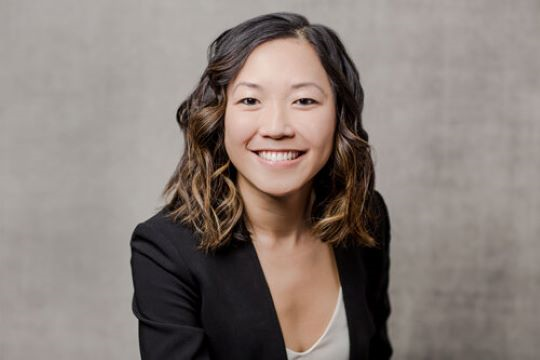 Katalin Karikó and Drew Weissman awarded Horwitz Prize for pioneering research on COVID-19 vaccines.
Katalin Karikó and Drew Weissman’s work represents a historic landmark in vaccine development: The COVID-19 vaccines are the first approved (for emergency use) that use mRNA. Karikó and Weissman are the 107th and 108th winners of the Horwitz Prize, which is awarded annually by Columbia University for groundbreaking work in medical science. Read more.
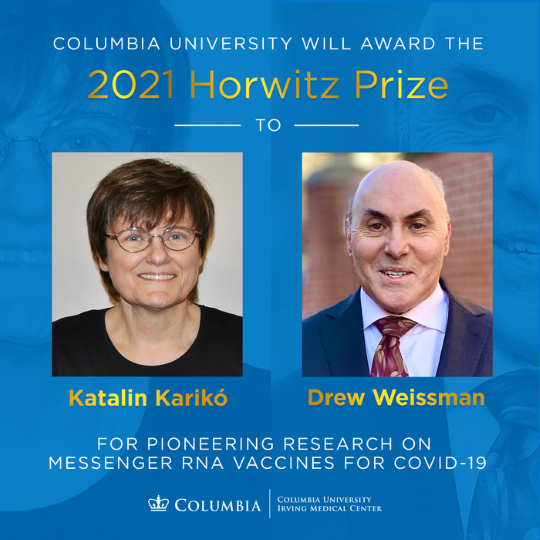
NASA’s Lynnae Quick awarded American Astronomical Society prize for outstanding achievement.
Dr. Lynnae C. Quick is a research scientist in planetary studies at NASA's Goddard Space Flight Center in Greenbelt, Maryland. The award cited Dr. Quick’s innovative scientific work that focuses on geophysical processes writ large, reaching from the inner solar system, through the asteroid belt, to ocean worlds, and into the exoplanetary realm. Read more.
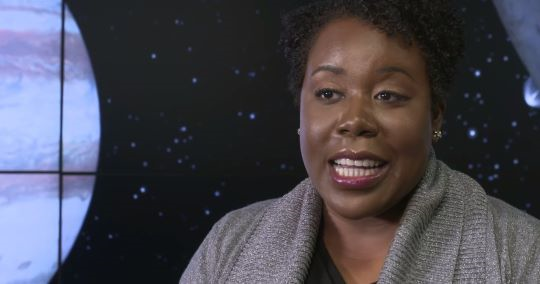
Lila Gleitman, who showed how children learn language, dies at 91.
Lila Gleitman, whose pioneering work in linguistics and cognitive science expanded our understanding of how language works and how children go about learning it, died on Aug. 8 at a hospital in Philadelphia, Clay Risen reports. She was 91. Read more.
Angela Milner obituary.
Angela Milner was a Natural History Museum palaeontologist who specialized in meat-eating dinosaurs and their direct descendants, the earliest birds. Several extinct animals have been named in Angela Milner's honor, and her influence on her colleagues and on the development of the subject, both in the UK and internationally, has been immense. Read more.
Building a better chemical factory—out of microbes.
Professor Kristala Jones Prather has made it practical to turn microbes into efficient producers of desired chemicals. She’s also working to reduce our dependence on petroleum, according to MIT Technology Review. “We are increasing the synthetic capacity of biological systems,” says Prather, who made MIT Technology Review’s TR35 list in 2007. “We need to push beyond what biology can naturally do and start getting it to make compounds that it doesn’t normally make.” Read more.
The future of the Afghan Girls Robotics Team is precarious.
The Afghan Girls Robotics Team made headlines in 2017 when they came to Washington for an international competition just a few blocks from the White House. The U.S., the European Union and 20 other nations issued a joint statement Wednesday saying, "We are deeply worried about Afghan women and girls, their rights to education, work and freedom of movement. We call on those in positions of power and authority across Afghanistan to guarantee their protection." Read more.
Katie Galloway receives NIH award to develop foundational tools for cellular engineering.
Using a combination of stem cell biology, systems biology, synthetic biology, and chromatin engineering, the Galloway lab at MIT will define the molecular regulatory rules of cell-fate transitions. As a chemical engineer working in molecular systems biology, Galloway’s research focuses on elucidating the fundamental principles of integrating synthetic circuitry to drive cellular behaviors. Read more.
Female scientists set back by the pandemic may never make up lost time.
Changing how scientists credit each other could reduce inequality, according to a new study. The analysis of citations inequality shows that biased individual preferences systematically reduce the number of citations women receive. Since citations measure scientific impact, women receiving fewer citations find fewer professional opportunities. This affects all female scientists. Read more.
Women feel like imposters in disciplines that value ‘brilliance’.
According to a new study, academics who believe “brilliance” is a prerequisite for success in their field are more likely to doubt their abilities. It’s a problem that disproportionately affects women, particularly those from underrepresented racial and ethnic groups, Mennatalla Ibrahim reports. Read more.
How this woman wants to level the playing field for women in STEM.
Entrepreneur Dora Palfi is the co-founder and CEO of ImagiLabs, a Sweden-based edtech company making products that empower girls with the skills and community to create with technology. “We believe that coding is a superpower. It’s the literacy of the next generation. By encouraging girls to learn programming, we are giving them the opportunity to be the inventors, entrepreneurs and changemakers that will help to design our future digital society.” Read more.
IF/THEN ambassadors find innovative ways to connect.
In September 2019, the AAAS IF/THEN Ambassadors program selected 125 women in STEM careers to serve as role models for middle-school girls. As part of the IF/THEN initiative, ambassadors were soon starring on television and on YouTube and working with girls in museums, classrooms, and Girl Scout meetings across the United States, Becky Ham reports for Science. Read more.
Academic institutions must do better to protect caregivers this fall.
In an opinion piece for the Scientific American, 500 Women Scientists implore those in leadership positions at schools, universities and workplaces that have not reimposed mask mandates to reexamine their positions on masking, and with science as a guide, act to put these protections in place given the pandemic resurgence. Read more.
The Partnership between NanoString and ROSALIND. The Experience of a Stem Cell Genomics and Microscopy Core in Sunny California.
In October 2020, NanoString® Technologies and ROSALIND announced a partnership to grant global access to the ROSALIND® Bioinformatics Platform for all nCounter users. Among the users, the Sanford Consortium for Regenerative Medicine at the University of California San Diego (UCSD) is a hub for basic stem cell research in the United States. Elsa Molina runs the UCSD Stem Cell Genomics and Microscopy Core at the Sanford Consortium. In this interview, she talks about their experience using ROSALIND to analyze nCounter data. Read more.
Marianna Limas, Social Media Manager
Nilda Rivera, Partnership and Events Manager
|
|
Dear Colleagues,
I am pleased to include another issue of RFS Briefings with some timely and encouraging updates on women in science.
- In case you missed our GEN/RFS Women in Science webinar, you can watch it here! Dr. Amy Abernethy, President of Verily' s clinical research business, provided a view into their expansion into a full-scale clinical evidence generation platform. Her focus will continue to be making it easier and faster to run clinical studies with the goal of using clinical data to accelerate clinical trials. She noted that "the COVID-19 pandemic has underscored the importance of improving the clinical trials process, breaking down barriers to participation and speeding access to medicines."

-
The American Society of Human Genetics (ASHG) has named Sharon Terry, MA as the 2021 recipient of the Advocacy Award. Terry is president and CEO of the Genetic Alliance, an organization engaging individuals, families, and communities to transform health. She was a past speaker at an RFS Board Meeting. Read more.
-
Congratulations to the first recipient of the Sharon Begley-STAT Science Reporting Fellowship, Isabella Cueto, a Cuban American journalist. Read more.
See below for more news about women in science
Please continue to share important news and opportunities with us so that we may share it with you, and others who are committed to supporting the careers of exceptional women in science.
Stay safe and sound,

Karla Shepard Rubinger
Executive Director
Rosalind Franklin Society
www.rosalindfranklinsociety.org

The Rita Allen Foundation has named its 2021 class of Rita Allen Foundation Scholars. Congratulations to Ellen Foxman, an RFS Award winner who spoke at our 2019 Colloquium at the Wistar Institute! Read more.
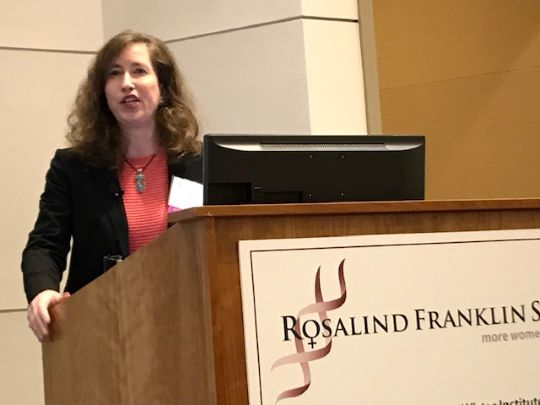
Applications are open through December 1, 2021 for the next round of the Hanna Gray Fellows Program.
The goal of the program is to recruit and retain individuals from gender, racial, ethnic, and other groups underrepresented in the life sciences, including those individuals from disadvantaged backgrounds. Read more.
Apply now for The Michelson Philanthropies & Science Prize for Immunology.
The prize focuses on transformative research in human immunology, with trans-disease applications to accelerate vaccine and immunotherapeutic discovery. Read more.
The Howard Hughes Medical Institute has selected the 2021 class of Gilliam adviser-student pairs as part of a program to advance diversity and inclusion in science. They represent the largest group of fellows selected in the Gilliam Program’s history. Read more.
NIH has awarded $50,000 each to 10 institutions for their efforts in enhancing faculty gender diversity.
On October 5, the NIH Office of Research on Women's Health will host a forum, Effective Approaches to Fostering Faculty Gender Diversity, Equity, and Inclusion: Celebrating Progress, to formally recognize and promote the winners’ effective, evidence-based practices, address challenges, and improve the existing career paradigm for many women in biomedical and behavioral science. Read more.
Meet the 50 women over 50 shaping the future of science, tech and art.
Forbes and Know Your Value released the list on Thursday as part of its “50 Over 50” series, which is dedicated to highlight women over the age of 50 who have achieved significant success later in life, often overcoming formidable odds or barriers. Read more.
Mattel's Barbie turns women of science, including COVID vaccine developer, into dolls.
British vaccinologist Sarah Gilbert is one of the six women Mattel Inc has recognized as role models in the fight against COVID-19. According to the toymaker, the five other honorees are U.S. health care workers Dr. Audrey Sue Cruz and emergency room nurse Amy O'Sullivan, Canadian doctor and advocate against systemic racism in health care Chicka Stacy Oriuwa, Brazilian biomedical researcher Dr. Jaqueline Goes de Jesus and Australian doctor and protective gown developer Kirby White. Read more.
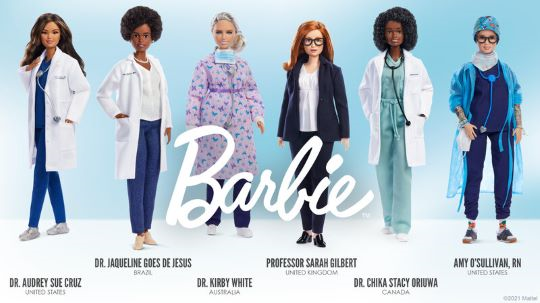
More women than ever are starting careers in science.
Women are more likely to start a research career now than they were 20 years ago, according to a study of the publishing records of millions of researchers around the world. But they are less likely to continue their academic careers than are their male contemporaries, and in general publish fewer papers, writes Katharine Sanderson in an article for Nature. Read more.
Microbiologist Elisabeth Bik queried Covid research – that’s when the abuse and trolling began.
When Dr. Elisabeth Bik raised serious concerns about the methodology of a paper that claimed hydroxychloroquine was effective in treating Covid-19, the online trolling was relentless, writes Melissa Davey in an article for The Guardian. Dr. Bik says she became much more careful about posting personal information after attacks began, but was determined not to be intimidated. Read more.
Are women climate scientists judged for speaking out? Not so much, research suggests.
In a new study, Lauren Armstrong and George Adamson were the first to examine how climate scientists are perceived by other scientists when speaking in favor of particular policies in the media. What they found suggests women scientists may have less to fear from their peers than they might think. Read more.
Twist Bioscience ‘writes’ DNA on silicon chips, which can be used to fight COVID-19, develop precision medicines, and store your favorite Netflix show.
On this week’s Most Innovative Companies podcast, Twist Bioscience co-founder and CEO Emily Leproust talks about how her company is empowering the entire ecosystem of synthetic biology, which is booming. Last year, investors poured nearly $8 billion into related companies. Read more. Dr. Leproust was a recent speaker at the RFS Colloquium. You can see her presentation here.
She has stem cells in her crosshairs.
Agnieszka Czechowicz is an assistant professor of pediatrics at the Stanford University School of Medicine. In her lab research, her medical practice, and her work as an entrepreneur, she focuses on people who suffer from severe diseases like bone marrow failure or acute myeloid leukemia, who can’t produce blood or immune cells the way they are supposed to. Read more.
New survey shows Los Angeles VCs outpacing national funding for women, POC-led businesses.
PledgeLA, a coalition of hundreds of venture capital and tech leaders working to increase equity and accountability around corporate diversity efforts, released the results of its diversity, equity, and inclusion survey. Read more.
Women participate less at conferences, even if gender-balanced.
If women are not visible at conferences, they cannot act as role models for junior academics, creating a self-perpetuating cycle. A new study suggests that increasing the number or visibility of female chairs increases the number of questions from women. Read more.
Marianna Limas, Social Media Manager
Nilda Rivera, Partnership and Events Manager
|
|
|